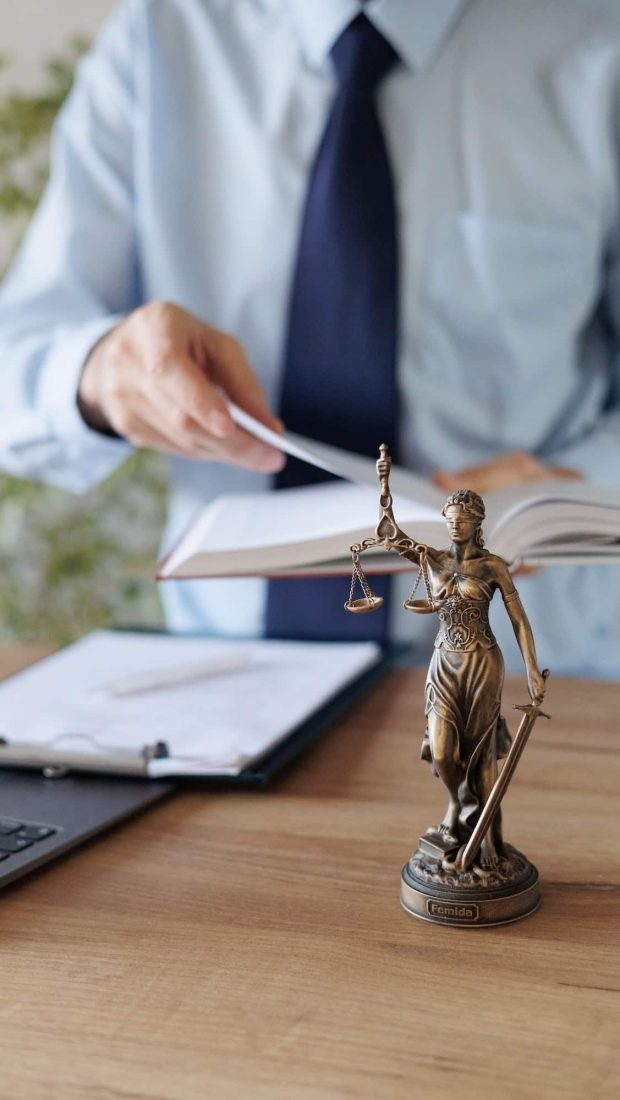
If you rent a house in the UK, you should have a good rapport with your landlord and enjoy a comfortable rental term that includes all you paid for. However, these ideal scenarios don’t always play out.
The Pearl Lemon Legal landlord tenant lawyer team is knowledgeable in UK housing law and is well aware that problems between tenants and landlords occur much more frequently than they ought to. Problems which they, as landlord tenant lawyer experts, are frequently called on to help solve, whether the issues proceed to court or can be settled via alternative dispute resolution, with the latter being something we are especially skilled in.
When might you consider suing your landlord with the help of a landlord tenant lawyer? If your landlord fails to undertake required maintenance or repairs, you may also file a lawsuit against them; if required repairs are not made, an injunction may be enforced. For mould compensation, the remediation of cold or damp conditions and the return of an illegally held security deposit, many clients turn to suing landlords too.
Why Aren't Landlords Doing Their Job?
Around 2.5 million people in the UK are believed to reside in rented homes that are unfit for human habitation, according to the non-profit organization Shelter. The majority of these rental housing tenants are still making their full monthly payments in accordance with their tenancy and are unaware of how to proceed to get the problem fixed. It’s no surprise that they come to us, as expert landlord tenant lawyers, upset, frustrated and with no idea what to do next.
But why aren’t landlords doing their jobs? All of this is frequently linked to the 1985 Act that required local governments to look into and enforce laws regarding problems with rented housing. Due to manpower shortages and financial constraints, many local governments found it difficult to enforce the laws, which essentially allowed private landlords to cut corners on property maintenance and repairs, frequently leaving good tenants to cover a variety of repairs and live in subpar accommodations.
The 1985 law was revised by the Fitness for Human Habitation Act, which once again made landlords fully responsible for the buildings they are renting out. Throughout the lessors tenure, they are charged with making sure the house is suitable for habitation and suited for its intended use. This includes fixing problems with ventilation, moisture, and cold that call for more complicated fixes.
These are just a few of the situations that our knowledgeable landlord tenant lawyers at Pearl Lemon come across frequently, but they certainly aren’t the only ones for which you might need to contact a landlord tenant lawyer.


What Justifications Do UK Leased Housing Tenants Have for Taking Action?
Landlords are now expected to pay far closer attention to a number of issues, and tenants have the right to sue if they are ignored or violated. They include all the things listed below, but they are not the only ones.
If you’re unsure whether a problem you’re experiencing is something for which legal action should be taken against your landlord, a Pearl Lemon Legal landlord tenant lawyer should be able to clarify your position:
- Neglectful construction or shoddy repair work that has made a structure unsafe or in poor condition.
- Spreading mould or mildew
- Water supply issues with either hot and cold water.
- Having trouble washing your hands properly or cooking in the kitchen makes the space unsanitary and unusable under law. This might occur as a result of a poorly draining sink, a lack of water, hazardous appliances, uneven flooring, and other factors.
- Significant plumbing problems, like leaks in basements or lofts or poor toilet or bath drainage.
- Temperatures that are too high or too low as a result of faulty heating systems.
- Exposure to asbestos and other dangerous, outlawed compounds
- Exposure to carbon monoxide
- Equipment or pipes that leak gas.
- Security concerns, such as a back door or front door without a functioning lock.
- Dangerous conditions in the shower or bathtub, such as a damaged shower floor.
- Electrical risks
- Fire hazards
Deposit Protection Issues
Additionally, tenants have the right to sue a landlord if they believe they have improperly retained their security deposit or failed to properly secure it.
If you have an Assured Shorthold Tenancy and have rented any type of property from a private landlord and your deposit is not returned to you, you might be qualified to make a no-fee claim for damages against them. If the security deposit is not correctly returned at the end of the tenancy, you can additionally be qualified to make a claim for up to three times the initial deposit.
Within 30 days of receiving your security deposit, your landlord must legally deposit it into one of three reputable deposit protection programs. This is required by law. They cannot just put it into their bank account, as they can with monthly rent payments, under any conditions.
To try to ensure that you’ll receive your money back when you rent a home, the government-approved tenancy deposit schemes are something that landlords are required by law to participate in, and claimed ignorance of this fact – which is something we encounter as landlord tenant lawyers – is no defence in the eyes of the courts.


Usually, under the law, your deposit should be returned to you at the end of your tenancy if all the following can be said to be true:
- You have followed the rules laid out in your lease.
- You have ensured that neither you nor your guests have caused any significant harm or damage to the property.
- You have paid the rent and any other charges outlined in your formal lease in full.
If the landlord has not upheld their legal commitments to you, the tenant, things between a landlord and tenant usually go south quickly. A landlord may also attempt to withhold the security deposit even though they may know (and should know) that you are entitled to a return of the funds if you have to vacate the property by assuming that a tenant is ignorant of their legal rights.
To ensure that you receive the money you are owed in this situation and, in some situations, an additional payment that is up to three times the original deposit amount, you might choose to file a claim. The bulk of landlords do, in fact, have lawyers who work hard on their behalf; you, as a tenant, should have the same. Our landlord tenant lawyers will handle that for you as effectively as the ‘other side’ will be represented.
Landlord Tenant Lawyer: What Defenses Do Landlords Have in Court?
Even if they seem unfair, there are certain things you cannot sue your landlord for. Both landlords and tenants are protected under UK housing laws. These are the most typical of them:
- Any issues brought on by your actions as a renter, including any irresponsible or illegal actions.
- Things out of your landlord’s control, such as an accidentally started fire, a naturally occurring flood, or another natural disaster like a major electrical storm.
- Any problems you may have with furnishings left behind by a prior renter that wasn’t listed in an inventory when your lease originally started.
- In other situations, a landlord might have wanted to carry out the repairs for you but been unable to do so due to opposition from other parties and the need for numerous planning licences. They are frequently protected from legal action in this circumstance, although the other parties might not be.


What's the best way to sue my landlord?
Many tenants who have hired our landlord tenant lawyers have successfully handled their disputes with landlords, just as they had planned. Since our team has extensive knowledge and experience in both alternative dispute resolution and housing law, this is frequently possible without the need to participate in a costly, time-consuming, and unpleasant court proceeding.
To improve the likelihood that any case you bring against your landlord will be successful, there are a few things you must do:
A problematic issue in a rental property should always be reported to your landlord as soon as possible. In a perfect world, they would consider your grievance quickly, take it seriously, address the matter fast, and you wouldn’t even need to think about landlord tenant lawyers at all.
To find out which repairs the landlord is responsible for making and within what timeframe, first check your tenancy agreement or contract. Then, take these steps as they apply to your situation.
- Compile evidence of the damage, the necessary repairs, or other difficulties, and take photographs as necessary, to make sure that your landlord is aware of the issue(s) and that you could prove that later should you need to.
- Have a detailed conversation with your landlord or letting agent. You can do this orally, though it is preferable to write it in writing so that you have a harder to dispute record of it. Relying solely on verbal communication from a legal standpoint could be problematic, thus the more written communication you can gather on the issue, the better.
- Maintain copies of all communications, including text messages, emails, and letters to your landlord. Whenever you can only communicate verbally, keep your own notes of the date, time, and conversation’s details.
- Be sure to save the doctor’s notes if the property’s issues led to an illness or injury. Keep track of all the invoices you receive for further medical care you required due to the illness or injury.


Do make sure to retain all of your receipts in case you decide to make the repairs yourself out of need rather than waiting for your landlord to act, which would probably make the problem worse.
After taking these steps, consult a landlord tenant lawyer, such as the dedicated lawyers for tenants on the Pearl Lemon Legal team. If you do have a legal claim, they can advise you on the best course of action, including if they can defend you on a no-win, no-fee basis or if alternative dispute resolution might be a better option for you.


